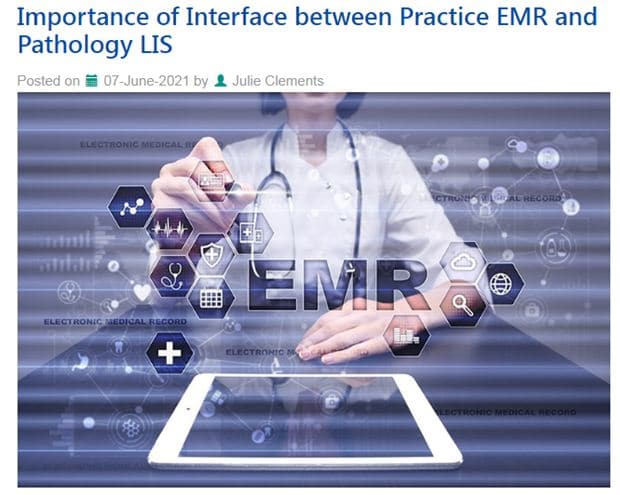Comprehensive and accurate nursing notes are vital to make good therapeutic decisions. In fact, medical transcription outsourcing companies help the healthcare team ensure timely, error-free nursing notes. When in the intensive care unit, patients get individualized care from a specialized team. Each patient is assigned a specially-trained nurse who keeps round-the-clock vigil, closely monitoring the patient’s condition. A new study from the University of Waterloo in Ontario suggests that sentiments in healthcare providers’ nursing notes can be good indicators of whether intensive care unit (ICU) patients will survive. The research was published recently in the journal PLoS ONE.

Severity of illness scores help hospitals predict the 30-day survival of ICU patients. These scores are gathered within 24 hours of admission and include lab results, vital signs, and physiological and demographic characteristics.
- Lab results: Critically ill patients People admitted to the ICU will have a wide variety of tests done on different body fluids, such as blood and urine. Testing is done on admitted to ICU, and then every day, and in some cases, tests may be repeated. The results are expected to help diagnose potential medical problems or to assess how effectively their treatment is working.
- Vital signs: Vital sign bedside monitors monitor heart rate, blood pressure, intracranial pressure, oxygen levels and more. They quickly identify changes and complications in the patient’s condition, and alert the health care team so that appropriate action can be taken.
- Physiological and demographic characteristics: demographic variables such as age and sex, weight, body fat, mobility, muscle strength, balance, and other related factors, co-morbid conditions, prior treatment details, lead time of admission to hospital and ICU, and so on.
The researchers used a large publicly available ICU database to assess patient data from 2001 to 2012. The analysis covered 27,000 patients as well as the nursing notes. Nursing notes are a crucial component of the medical record created a nurse and provide an accurate picture of nursing assessments, changes in patient conditions, care provided and other important information necessary to help the clinical team deliver proper care.
Applying an open-source sentiment analysis algorithm, the researchers extracted adjectives in the text to establish whether the adjectives and statements in the nursing note are positive, neutral or negative. They then used multiple logistic regression model to examine the relationship between the measured sentiment and 30-day mortality, while controlling for gender, type of ICU, and simplified acute physiology score.
According to Joel Dubin, an associate professor at Waterloo, the physiological information collected in those first 24 hours of a patient’s ICU stay is really good at predicting 30-day mortality.
“But maybe we shouldn’t just focus on the objective components of a patient’s health status. It turns out that there is some added predictive value to including nursing notes as opposed to excluding them,” he said.
The researchers reported that:
- The sentiment analysis provided a perceptible improvement for predicting 30-day mortality in the regression model for this patient group.
- A clear difference was also found between patients with the most positive messages who had the highest survival rates, and the patients with the most negative messages who had the lowest survival rates.
“Mortality is not the only outcome that nursing notes could potentially predict,” said Dubin. They might also be used to predict readmission or recovery from infection while in the ICU.
The results of the study highlight the importance of the subjective components of these notes for predicting the 30-day survival of ICU patients. Besides providing a clear and accurate picture of the patient while under the care of the healthcare team, nursing notes are required to comply with federal, state, and institutional regulations broad guidelines to determine if a nurse’s action was reasonable and prudent.
Nursing notes should include the following information:
- Interventions initiated and the patient response when documenting an acute abnormality found during assessment
- Detailed documentation a body system abnormality in each assessment, including description and size of wounds if any
- Whether the assessment was visual, audible, and/or tactile
- Reconciliation of mismatched objective and subjective assessment findings
- Documentation of the patient’s baseline mental status
- Assessment of the patient at the time of discharge or transfer
RN.com points out that documentation reveals the care nurses provide their patient. Nursing notes help nurses organize their thoughts and identify problem areas for planning and evaluating care. Such documentation is crucial to communicate with other team members. It also allows the nurse to take credit for the services provided and ensures reimbursement. Nursing notes are used in research, to support decision analysis, and in quality improvement. In addition to assessing proper medical care, nursing notes can be used for malpractice litigation.
EHRs help nurses ensure nursing notes are complete and accurate. Advanced EHR systems are designed to alert nurses to any missing, incomplete, or possibly inaccurate nursing notes. EHRs also ensure proper management of nursing notes including safe storage and easy accessibility when needed.
EHR-integrated medical transcription services go a long way supporting efficient documentation of nursing notes. Experienced service providers provide error-free transcripts of history and physical reports, clinic notes, office notes, or operative reports all nursing specialties.


